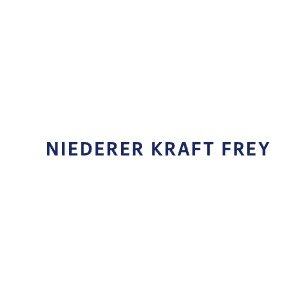Best Land Use & Zoning Lawyers in Zurich
Share your needs with us, get contacted by law firms.
Free. Takes 2 min.
Free Guide to Hiring a Real Estate Lawyer
List of the best lawyers in Zurich, Switzerland
About Land Use & Zoning Law in Zurich, Switzerland
Land use and zoning law in Zurich, Switzerland, plays a crucial role in urban planning and development. It involves the regulation of the use and development of land and buildings to ensure orderly growth, environmental protection, and adequate provisions for public utilities and amenities. The Swiss Federal Constitution provides the foundation for planning and zoning, delegating certain responsibilities to the cantons and municipalities. Zurich, being one of Switzerland's largest and most dynamic cities, has developed comprehensive land use plans to balance residential, commercial, and industrial needs while maintaining environmental sustainability.
Why You May Need a Lawyer
There are several situations where you may need legal assistance in the field of land use and zoning in Zurich:
- Property Development: Navigating regulations for new developments or modifications to existing structures can be complex, involving multiple permits and compliance checks.
- Zoning Disputes: Conflicts may arise over land use rights, leading to disputes with neighbors, local authorities, or businesses.
- Environmental Concerns: Building or expanding on land that requires environmental assessments or entails environmental restrictions might necessitate legal expertise.
- Investment Decisions: Investors may seek advice on zoning laws to assess the feasibility and potential risks of property investments.
- Public Development Projects: Citizens or local groups may require legal support when opposing or negotiating terms in public infrastructure projects.
Local Laws Overview
Zurich’s land use and zoning regulations are shaped by federal, cantonal, and municipal guidelines:
- The Spatial Planning Act (SPA): Provides a legal framework to ensure coordinated land use planning across Switzerland.
- Cantonal Structure Plan: Outlines spatial development at the cantonal level, coordinating with federal planning objectives.
- Municipal Master Plans: Detail zoning codes and land use designations specific to Zurich’s neighborhoods, influencing what can be built and where.
- Zoning Ordinances: Define land use types (residential, commercial, industrial) and set terms for use and density.
- Building Regulations: Specify architectural and construction standards to ensure safety, aesthetics, and environmental impacts.
- Environmental Law Compliance: Incorporates sustainability requirements, focusing on conserving resources and minimizing pollution.
Frequently Asked Questions
What is the process for obtaining a building permit in Zurich?
Obtaining a building permit involves submitting an application to the local municipal office, including detailed plans that comply with zoning and building regulations. The process may require consultations with multiple departments regarding environmental and heritage protections.
Can zoning laws affect the value of my property?
Yes, zoning laws can significantly impact property values. They dictate permissible uses, affecting desirability and valuations based on allowed types and intensities of use.
How can I find out the zoning designation for my property?
You can obtain information about the zoning designation of your property from the municipal planning office or through Zurich's official online mapping services.
Can I appeal a decision made by a zoning board?
Yes, decisions made by local planning authorities can often be appealed. Procedures and time limits for appeals are outlined in cantonal and municipal regulations.
What are the consequences of non-compliance with zoning laws?
Non-compliance with zoning laws can result in fines, injunctions, and the forced modification or demolition of non-compliant structures.
Are there restrictions on commercial property development in residential areas?
Yes, commercial development in residential zones is typically restricted to protect residential character and may require specific permissions or rezoning.
How do historical preservation rules interact with zoning laws in Zurich?
Historical preservation rules can impose additional requirements where properties are within designated historic areas, impacting modifications, renovations, or new constructions.
What kinds of environmental reviews are required for new developments?
New developments may need an Environmental Impact Assessment (EIA) to analyze potential environmental effects, with requirements depending on the project's scale and location.
Can I change my property's zoning classification?
Changing a property's zoning classification generally involves submitting a rezoning application to the local zoning authority, which assesses the request based on broader community planning objectives.
Is legal advice necessary for small renovation projects?
While small projects may not always require legal advice, it can be beneficial to consult a lawyer if your project potentially impacts zoning rules or neighbor agreements.
Additional Resources
For more information on land use and zoning in Zurich, consider the following resources:
- Swiss Federal Office of Spatial Development (ARE): Provides national planning documents and policies.
- Canton of Zurich Spatial Planning Office: Offers insights into cantonal structure plans and policies.
- Zurich City Planning Department: Manages local master plans and zoning information.
- Swiss Society of Engineers and Architects (SIA): A professional body that offers guidelines and standards relevant to construction and planning.
Next Steps
If you need legal assistance in land use and zoning in Zurich, consider taking the following steps:
- Identify Your Needs: Clearly outline the nature of your issue or project to guide your search for legal expertise.
- Research Legal Professionals: Look for lawyers or firms with expertise in land use and zoning law in Zurich, verifying their credentials and experience.
- Schedule Consultations: Arrange for initial consultations with potential legal advisers to discuss your issue and assess their approach and fees.
- Gather Necessary Documentation: Collect and organize all relevant documents, including property deeds, zoning maps, and any correspondence with planning authorities.
- Follow Legal Recommendations: Implement advice provided by your legal counsel to navigate through the regulatory environment effectively.
Lawzana helps you find the best lawyers and law firms in Zurich through a curated and pre-screened list of qualified legal professionals. Our platform offers rankings and detailed profiles of attorneys and law firms, allowing you to compare based on practice areas, including Land Use & Zoning, experience, and client feedback.
Each profile includes a description of the firm's areas of practice, client reviews, team members and partners, year of establishment, spoken languages, office locations, contact information, social media presence, and any published articles or resources. Most firms on our platform speak English and are experienced in both local and international legal matters.
Get a quote from top-rated law firms in Zurich, Switzerland — quickly, securely, and without unnecessary hassle.
Disclaimer:
The information provided on this page is for general informational purposes only and does not constitute legal advice. While we strive to ensure the accuracy and relevance of the content, legal information may change over time, and interpretations of the law can vary. You should always consult with a qualified legal professional for advice specific to your situation.
We disclaim all liability for actions taken or not taken based on the content of this page. If you believe any information is incorrect or outdated, please contact us, and we will review and update it where appropriate.















